A day after giving birth, Georgia woman learns she has breast cancer
32-year-old diagnosed with breast cancer day after baby was delivered
A Gwinnett County woman is recovering from breast cancer surgery after a whirlwind end to her pregnancy. Doctors diagnosed April Addison with breast cancer the day after they delivered her son by caesarian section.
SUGAR HILL, Ga. - April Addison is trying to balance taking care of her 6-month-old Ashton with taking it easy as she recovers from a mastectomy and breast reconstruction surgery.
At 32, the Northside Forsyth Hospital cancer nurse has found herself a cancer patient.
"I'm good," Addison says. "You know, I have my days when I, you know, I cry, but at the end of the day, I have to fight, and I'm a fighter, so that's what I do. I'm 32, so you don't really hear much about 32-year-olds, no family history, you know, having a go through breast cancer."
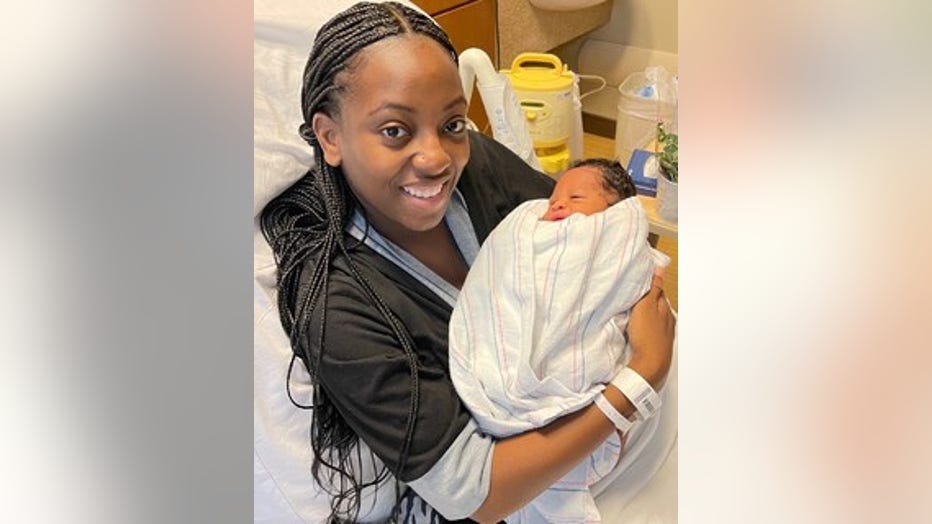
April Addison, a 32-year-old oncology nurse from Sugar Hill, Georgia, was diagnosed with stage 2 breast cancer the day after her son was born. (April Addison)
April, who lives with her husband Leo and 3-year-old son Aiden in Sugar Hill, was pregnant with Ashton last spring when she felt a small, hard knot in her breast near her nipple.
Her milk was coming in, so she assumed she had a clogged milk duct.
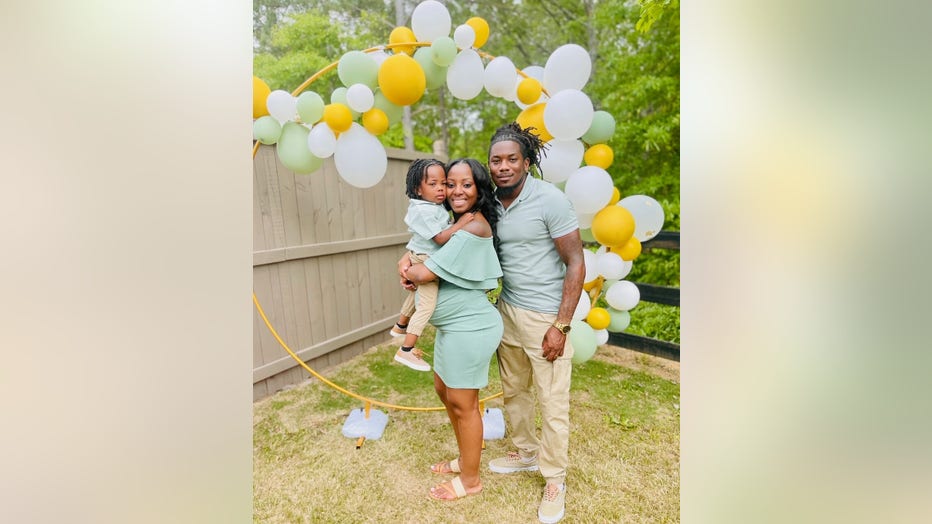
When 32-year-old April Addison felt a lump in her breast during her pregnancy with her second son, the oncology nurse assumed she had a clogged milk duct. It wasn't until the lump began to hurt that she mentioned it to her obstetrician. A day after h
Her oncologist Dr. Amelia Zelnak, the president of Atlanta Cancer Care, says she understands the confusion.
"With breast cancers, it can be really hard during pregnancy, because there are so many changes that are happening in your breast that you just have a hard time knowing, is this normal or not normal," Dr. Zelnak says.
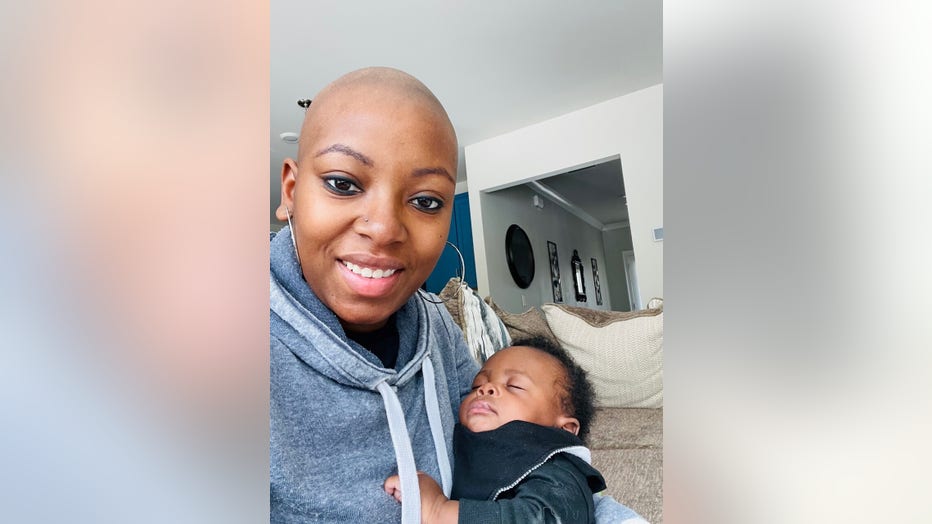
When 32-year-old April Addison felt a lump in her breast during her pregnancy with her second son, the oncology nurse assumed she had a clogged milk duct. It wasn't until the lump began to hurt that she mentioned it to her obstetrician. A day after h
At the very end of her pregnancy, Addison says, the lump suddenly started to hurt, then the pain disappeared.
At her 39-week checkup, she told her obstetrician, who sent her right away to another doctor for a breast ultrasound to take a closer look at the lump.
Addison says the doctor was concerned.
"She said, you know, we see some lymph nodes that look abnormal, so we need to do a biopsy," she says. "So, 39 weeks pregnant, I get a biopsy done."
Addison says she was terrified.
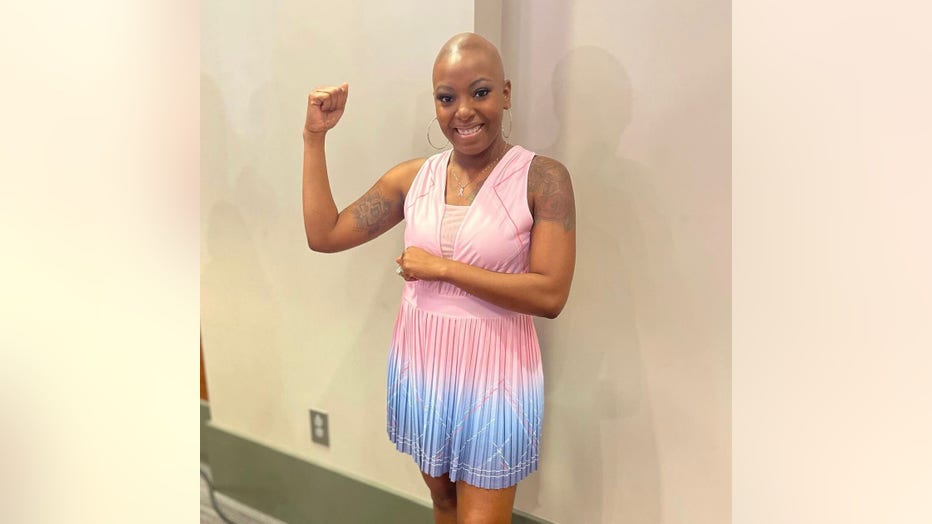
When 32-year-old April Addison felt a lump in her breast during her pregnancy with her second son, the oncology nurse assumed she had a clogged milk duct. It wasn't until the lump began to hurt that she mentioned it to her obstetrician. A day after h
"I started crying, she says. "Being an oncology nurse, I'm like, 'Oh goodness, I have no family history of breast cancer. So what could possibly be going on?'"
On June 28, 2022, the day after Ashton was delivered by caesarian section at Northside Forsyth, Addison was diagnosed with stage 2 breast cancer.
While she was in the hospital, she had her first mammogram and breast MRI, and Dr. Zelnak came to meet with her to talk about the treatment options.
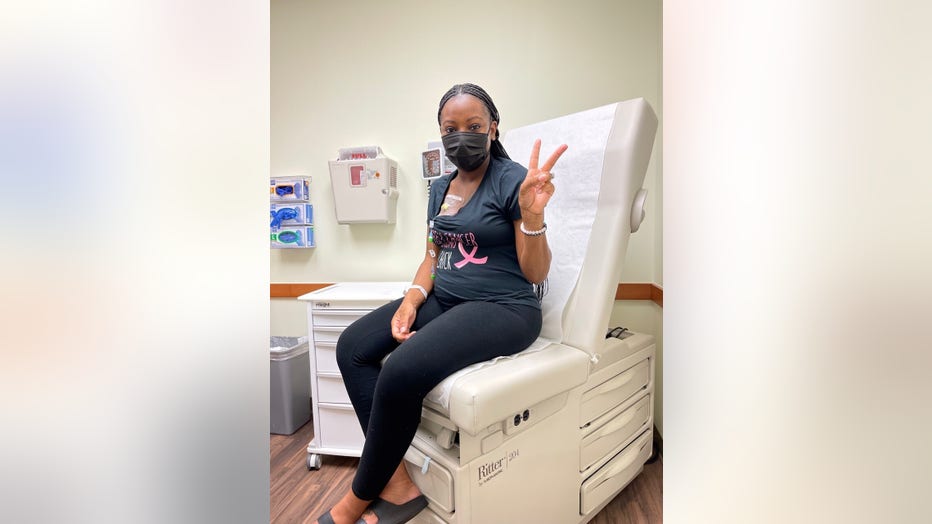
When 32-year-old April Addison felt a lump in her breast during her pregnancy with her second son, the oncology nurse assumed she had a clogged milk duct. It wasn't until the lump began to hurt that she mentioned it to her obstetrician. A day after h
"I was, you know, hurt," Addison says. "I was confused. I felt like, man, I had been given a bad hand. I'm like, 'Why is this happening to me, you know, right now?'"
Within a couple of weeks, she was told, she would need to start treatment, which would likely include surgery, chemotherapy and radiation.
"She chose to get the chemotherapy first, which we do often times in younger women where we know that chemotherapy absolutely needs to be done," Dr. Zelnak says.
But the chemo bought Addison time to think about her next step: breast cancer surgery.
'So, instead of rushing into, 'I just had this baby, and now I have to make a major decision in the next week or two about what type of surgery I want to have,' she had 4 months to consider her options about how to best proceed," Zelnak says.
Addison chose a bilateral mastectomy, surgical removal of both breasts, which will radically lower the risk of a recurrence.
Once she has healed from the operation, Addison will start radiation therapy.
She says she has a lot of support from family, friends, coworkers and her treatment team.
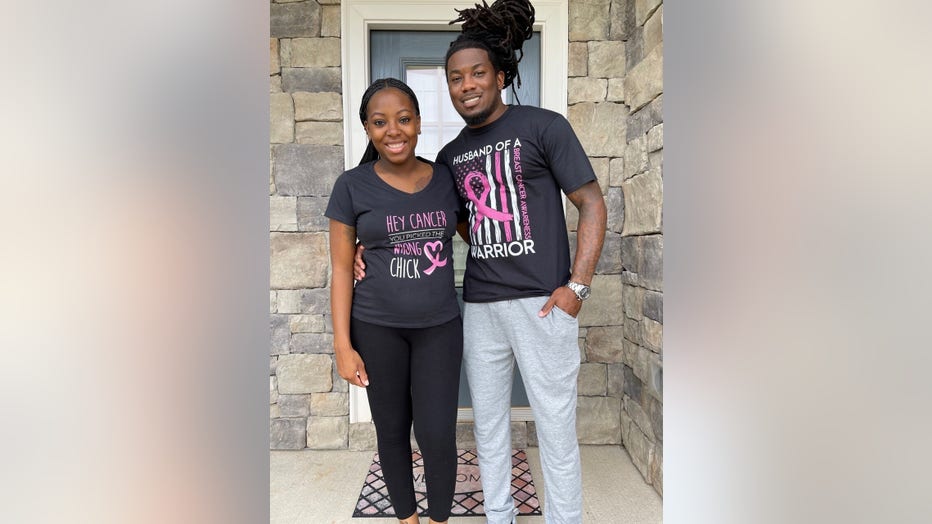
When 32-year-old April Addison felt a lump in her breast during her pregnancy with her second son, the oncology nurse assumed she had a clogged milk duct. It wasn't until the lump began to hurt that she mentioned it to her obstetrician. A day after h
But transitioning from being a cancer nurse to being a cancer patient has been challenging.
"I'm so used to caring for everybody and, you know, doing things for everybody," Addison says. "So it's hard when you have to let go, and now you're the patient, and now it's time for people to care for you."
But her baby Ashton is healthy and happy.
"He is full of laughter, always laughing, you know," she says. "He's a great baby."
April Addison hopes her story resonates with women, especially those who are young or are pregnant.
"Never think that you're too young," Addison says. "Never think that, because you don't have a family history of it, that it can't happen to you. Because I'm a perfect example of how it can. If you feel something, you know, speak up. You need to say something. If you see something, if you see changes or, you know, not right in your body, you need to speak up and say something."

